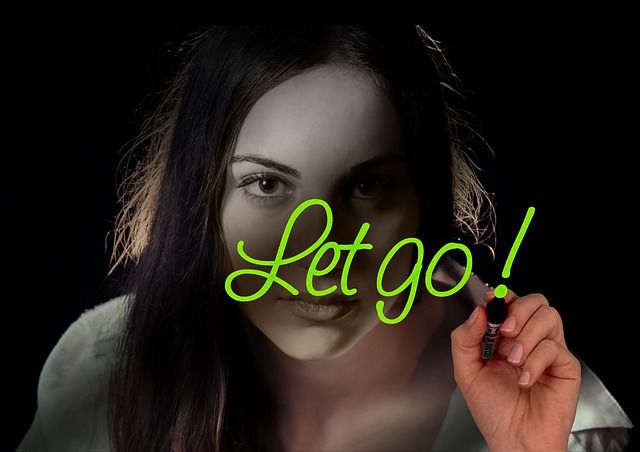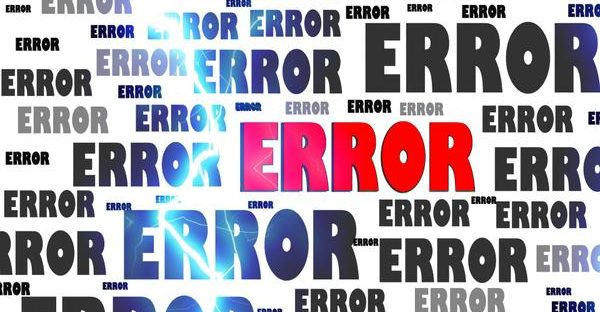Mistakes or errors occur every day in life, but many people don’t have the mental game that allows them to let go of errors and this hurts their chances for success. Errors such as a screw up on a simple task, letting a competitor maneuver themselves to grab a deal that was meant to be yours, or maybe you dropped the ball when asked to do something important for a key person that let them down.
No one is perfect; therefore, errors are just another part of the life. However, these errors often become a huge mental barrier for people who cannot cope with mistakes, the result of it affects their current performance. In many cases, especially with young people, like some of the athletes I coach, these people may become frustrated, shut down and tune out or keep repeating the same mistake over and over again.
I am sure you have made some mistakes in your career or life, which you were unable to forget quickly. They just linger within you and you keep replaying them over and over for the entire day. Many people can’t enjoy the moment or even the rest of their day because they are too busy beating themselves. It’s important to understand that dwelling on mistakes doesn’t help you correct the mistake, but it does prevent you from being able to focus on the present and move forward.
Dwelling on mistakes or blunders during a performance is the top distraction for people. You cannot perform in the present moment, or enjoy the day when your mind is stuck on a missed opportunity or error you made.
Why does your mind want to stay stuck on the past and dwell on errors?
Many people dwell on mistakes because they have high expectations for themselves. This could have been in-grained in them from a young age. When you make mistakes, it does not match what you expected of yourself (or what you think others expect of you). You set a standard for yourself and expect that you should always perform up to that standard. Some people will display anger or disappointment by acting out. This only acts as a distraction for you and your colleagues.
Once you start dwelling on an error, it is very hard to stop the cycle of negativity. Why? It becomes a pattern you lock in your mind. A cycle begins when you allow it to brew.
 The most successful people have the ability to let go of mistakes and learn from them. Use mistakes to help you grow and become better. If you can let go of mistakes quickly and maintain focus you can gain back control for the next performance, you’ll be a better overall. If you struggle with letting go of mistakes don’t expect your mental game to change overnight. You have to be patient with these changes, and improve over time.
The most successful people have the ability to let go of mistakes and learn from them. Use mistakes to help you grow and become better. If you can let go of mistakes quickly and maintain focus you can gain back control for the next performance, you’ll be a better overall. If you struggle with letting go of mistakes don’t expect your mental game to change overnight. You have to be patient with these changes, and improve over time.
The following are some important mental game strategies that will help you let go of errors:
1. Check your expectations
First, you have to check your expectations prior to your performance or going after a goal you set for yourself. Expectations can be the root of your anger or frustration when mistakes are made because they set you up for feeling let down when you don’t perform to your expectations. Everyone has their own ways to deal with stress and frustration when pressure is on. For example, some people practice relaxation techniques before, during or after a key performance. Breathing or visualization are two good tools to help this.
2. Interrupt the pattern
After an error, you have to let go quickly and focus on the next play. This means you have to interrupt the negative cycle where you dwell on it. You interrupt the cycle by stopping the thought process. Wear an elastic band on your wrist and when the cycle of dwelling is about to start snap the elastic band and say “STOP”. Then reaffirm what you want to achieve.
3. Rewind and replay
When a mistake is made it can become planted in your mind and locked in as a negative imprint. My suggestion is when a mistake is made close your eyes and rewind by imagining what occurred and replay it as you wanted the performance to be.
4. Learn from it
Take time to reflect and ask yourself some key questions.
“What can I learn from this?”
“How did I get here?”
“What do I need to develop or do next time to prevent this from happening again”
5. Move on!
Mistakes are part of life. It’s a development opportunity so when a mistake is made, learn from it and then move on. Take the time to reflect, learn and grow to excel at what you want.
If you would like some assistance with implementing strategies to let go of your mistakes, apply below for a complimentary session with me.
